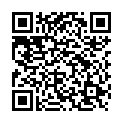|
|
|
| Module code: FTM-ITR |
|
2V (2 hours per week) |
|
3 |
| Semester: 1 |
| Mandatory course: no |
Language of instruction:
German |
Assessment:
Written exam 120 min.
[updated 26.02.2018]
|
FTM-ITR Automotive Engineering, Master, ASPO 01.04.2021
, semester 1, optional course
FTM-ITR Automotive Engineering, Master, ASPO 01.04.2023
, semester 1, optional course
KIM-ITR (P222-0056) Computer Science and Communication Systems, Master, ASPO 01.10.2017
, semester 2, mandatory course
PIM-ITR (P222-0056) Applied Informatics, Master, ASPO 01.10.2017
, semester 2, optional course, not informatics specific
PIM-ITR (P222-0056) Applied Informatics, Master, SO 01.10.2026
, semester 2, optional course, not informatics specific
|
30 class hours (= 22.5 clock hours) over a 15-week period.
The total student study time is 90 hours (equivalent to 3 ECTS credits).
There are therefore 67.5 hours available for class preparation and follow-up work and exam preparation.
|
Recommended prerequisites (modules):
None.
|
Recommended as prerequisite for:
|
Module coordinator:
Studienleitung |
Lecturer:
RA David Karhan
[updated 10.12.2024]
|
Learning outcomes:
Students will be able to apply essential legal terms and legal norms in day-to-day IT/telecommunications work. In addition to general content such as copyright and trademark law, contract law, data and customer protection ordinances, this includes IT/TC-specific content such as telecommunications law, software law and Internet law.
Students will be capable of analyzing the interrelationships and applicability of the various regulations and laws in the field of information technology and using examples be able to apply them to typical situations.
[updated 26.02.2018]
|
Module content:
1. Domain law
2. Copyright law
3. Open source software
4. Trademark law
5. Impressum (Imprint (UK), Site notice (USA))
6. Contract law: concluding a contract on the Internet
7. GTC law
8. Project agreement
9. Written form, electronic signature, responsibility
10. Distance selling, right of withdrawal
11. Data protection
12. Advertising
13. Telecommunications law
14. Product liability
One method of teaching the legal topics will be to use the classic example of a website with an online shop.
[updated 26.02.2018]
|
Recommended or required reading:
http://bundesrecht.juris.de/aktuell.html
(Gesetzestexte, BGB)
http://www.jurawelt.de/
see "Studentenwelt" (Skripte, Zivilrecht)
http://www.uni-muenster.de/Jura.itm/hoeren/
see "Lehre", "Materialien", Skriptum Internet-Recht
[updated 26.02.2018]
|

